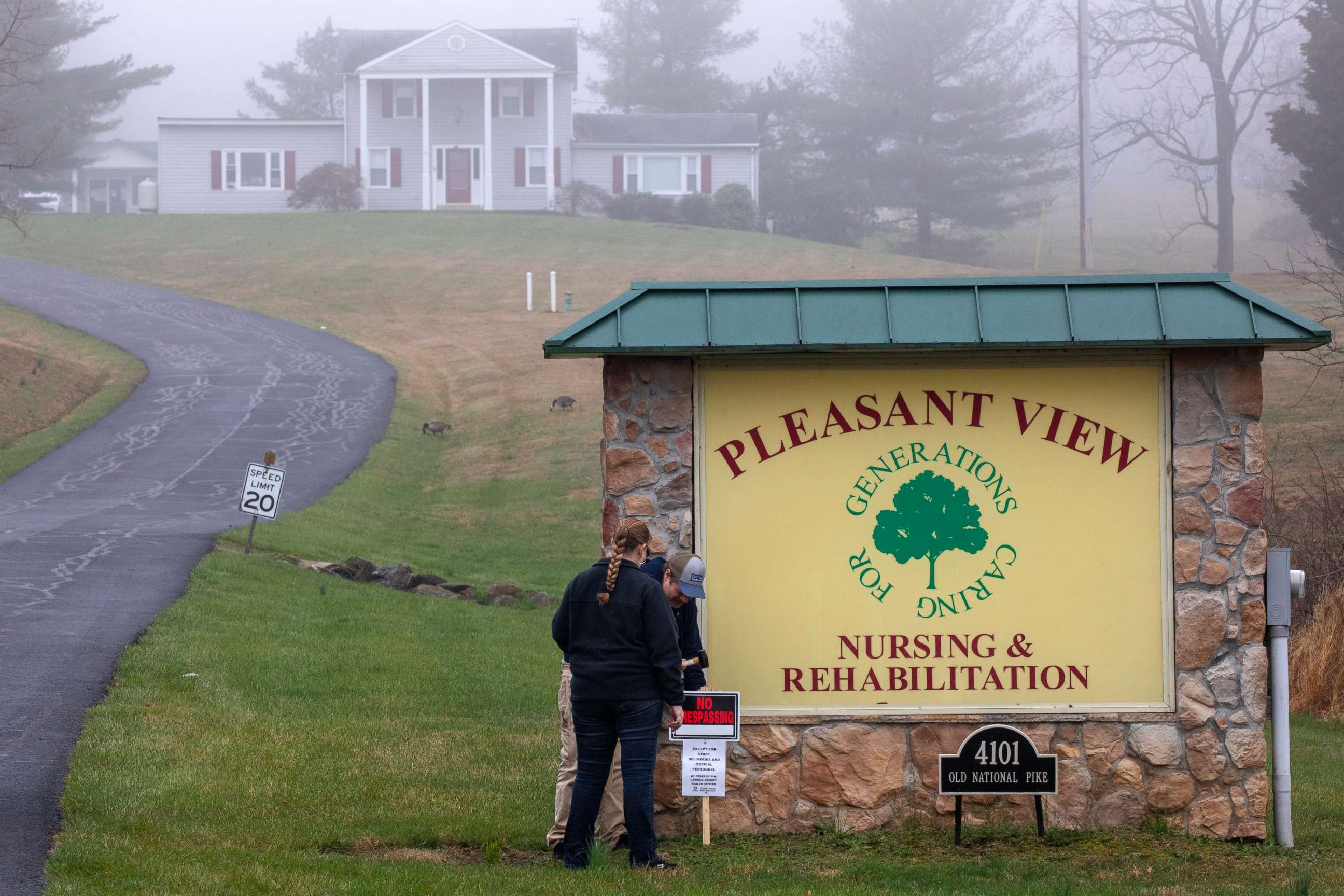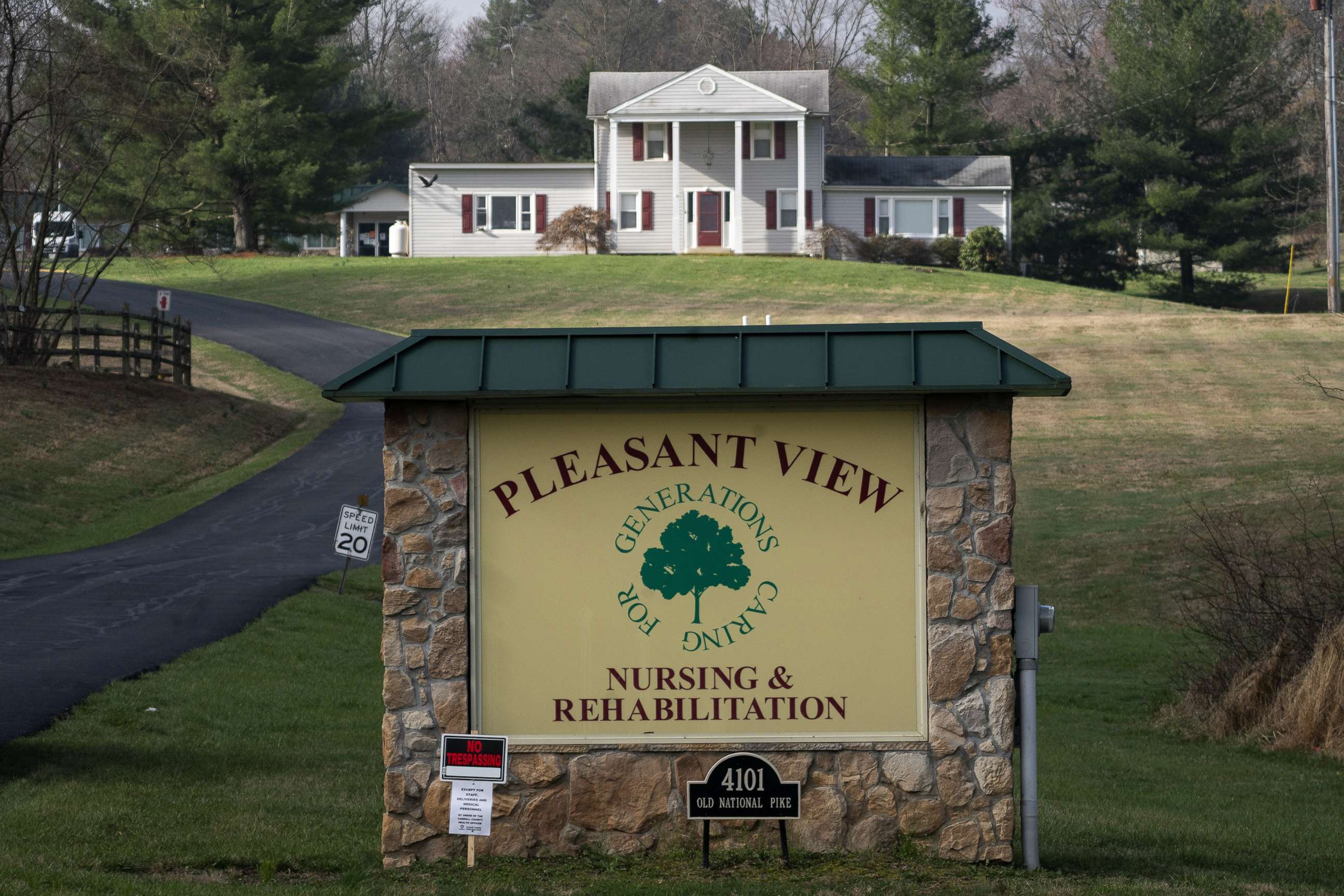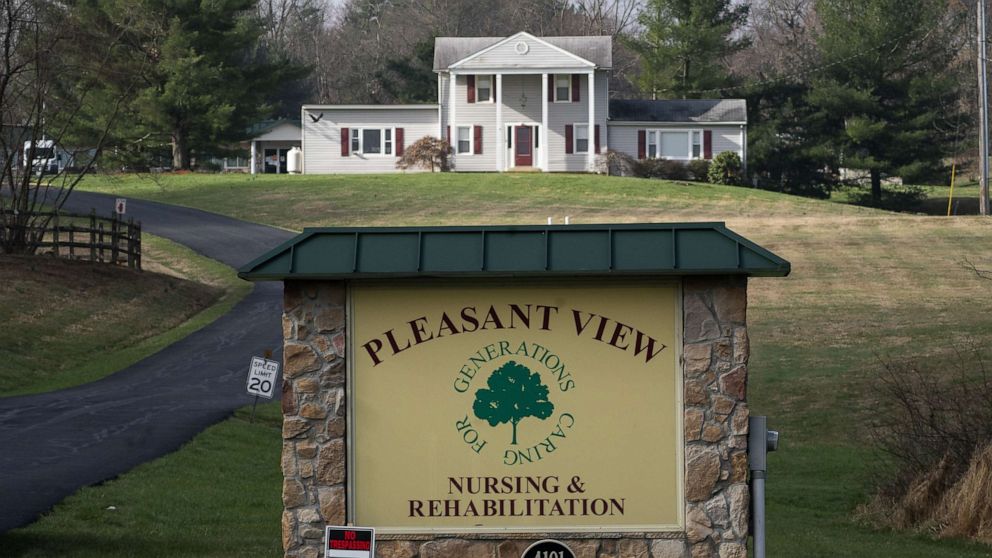Union demands protection for nursing home staff amid coronavirus pandemic
The union for 400,000 long–term care workers issued a plea for federal help on Wednesday to better protect the health care aides who they say are facing extreme risks as novel coronavirus has spread in dozens of nursing homes and assisted living facilities across the nation.
"Our members are truly on the front lines of this crisis. They are providing vital care to the nation’s most at-risk population on a daily basis," said April Verrett, president of SEIU Local 2015. "These workers are putting themselves in harm’s way every day that they go without proper protective equipment, and that ends now."
The shortages of protective equipment has been a widespread concern in hospital emergency rooms, with state and federal officials devoting considerable attention to resolving those supply issues. But, union officials said, that effort needs to extend to nursing and assisted living facilities that have been a focal point for viral spread from the earliest days of the crisis.
Tune into ABC at 1 p.m. ET and ABC News Live at 4 p.m. ET every weekday for special coverage of the novel coronavirus with the full ABC News team, including the latest news, context and analysis.
Nursing home companies interviewed by ABC News have acknowledged struggling to maintain supplies — a widespread issue confronting healthcare facilities nationwide.

Federal officials monitoring nursing home cases around the country, estimated that more than 400 of the facilities have at least one positive case. And dozens have faced widespread infection during the outbreak -- exposing not only the vulnerable residents but also those working there. At the Life Care Center in Kirkland, Washington, where 35 people died from COVID-19, 47 of the workers there fell ill. At a Tennessee home where least 74 residents tested positive, the Gallatin Center for Rehabilitation and Healing, the virus has also spread to at least 33 staff.
Several nursing home workers interviewed by ABC News -- most of whom insisted they not be named for fear of reprisals -- said they have been denied access to protective masks and gowns, been asked to work even after being exposed to infected residents, and are facing dangers they never imagined as the pandemic has worsened. They called themselves the forgotten on the front lines.
"We don’t have anything, not even hand sanitizer," said one health aide working at a 120-bed nursing facility north of Chicago. "We were told that if we wanted to wear masks, we had to bring in our own. Apparently they ran out of supplies."
A licensed practical nurse working at a senior care center in Baltimore said she asked her boss if she could bring in her own mask after the nurses were prohibited from using the available supplies. "I said what happens if I come in today wearing a mask … and they said it's possible termination if I do that," the nurse said.
Dr. Patricia Stone, a Columbia School of Nursing professor who researches infection prevention and control in nursing homes, said the vulnerabilities facing nursing care aides is just as real as with first responders, emergency room doctors and hospital nurses. In part, she said, that is because the work involves close contact with residents.
"All of health care is physical, it really is. It’s intimate," Stone said.
One challenge voiced by several nursing home employees who spoke with ABC News was the fear that getting sick would take not only a physical toll, but also a financial one.

Gretchen Gordon, a qualified medication administrator at Applewood Place Assisted Living in Colorado, said when she had a cough last month her supervisor told her to take an entire week off of work. She understood the reasoning, but that did not make it any easier.
"Now all the bills are coming up due because it's going to be the first and it's rough," she said. "It was really, really hard."
Nursing home companies interviewed by ABC News have acknowledged struggling to maintain supplies -- a widespread issue confronting health care facilities nationwide.
At the SEIU labor union event in California on Wednesday, industry officials, workers, labor leaders and state politicians asked for federal agencies to do more to protect those in nursing facilities.
"Our residents constitute the most at-risk group with regard to this outbreak; in most cases, they are elderly and suffering from pre-existing conditions, many of which are respiratory in nature," said Crystal Solorzano, CEO of ReNew Health Group. "We need to know our employees and residents are being kept safe, and that is not the case right now."
What to know about coronavirus:
- How it started and how to protect yourself: coronavirus explained
- What to do if you have symptoms: coronavirus symptoms
- Tracking the spread in the US and Worldwide: coronavirus map




